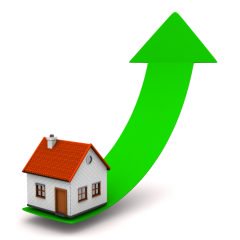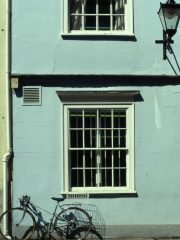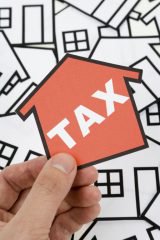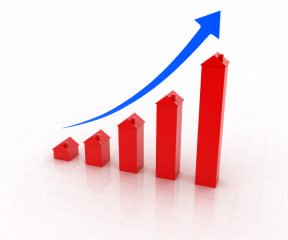Record high house prices around the UK, particularly in London, were driven by a lack of sellers and an increase in buyers, according to Rightmove.
In April, the average asking price of properties coming onto the market reached an all-time high of more than £286,000. This increase was fuelled by a rise in buyers and a shortage of sellers, found the UK’s biggest property website.
Rightmove’s report emphasises the housing crisis in Britain and arrives as political parties address the market in their election manifestos.
The property portal recorded its busiest ever month in March, the highest volume of visitors since its 2000 launch. The amount of people searching for homes grew 20% year-on-year. During the same period, the number of people listing their property on the website dropped 4% in the first three months of the year, compared to 2014.1
Director of Rightmove, Miles Shipside, says: “Record high housing demand and an undersupply of homes have delivered a new all-time high in the price of property coming to market in the month before the election.

Average Property Prices at Record High of Over £286,000 in April
“The high cost of housing is a big concern for many home-hunters, so the contents of the respective party manifestos and well thought-out sustainable solutions to the lack of affordable housing supply will be high on many voters’ agendas too.”
Last week, we reported David Cameron’s plan to expand the right to buy scheme to 1.3m families living in housing association properties. Read more about the proposal: /how-would-the-conservatives-right-to-buy-work/.
Critics of the Conservatives’ announcement believe that the scheme could worsen the housing crisis, causing prices to inflate.
Commenting on the average house price in April, which rose 4.7% over the year, Shipside says that they have been forced up by hopeful sellers hesitating to put their homes on the market and more landlords investing in properties. He thinks that the long-term rise in prices has been fuelled by a shortage of house building.
He says: “Failure to meet house building targets since the 80s, 90s and 00s to match forecast housing demand has been a major factor in upwards price pressure both in the property sales and private rented sectors.”1
Around the country, asking prices increased month-on-month in every region in April compared with March. They only fell annually in Wales. Monthly growth in Greater London and the North East were the highest in England, where the average asking prices were £594,585 and £146,361 correspondingly.1
Since the last general election in May 2010, the average asking price in London has risen by around 50% (£195,000). The north of England has experienced a 3.7% increase (£6,374).1
Separate research from property company Hamptons International revealed that hopeful homeowners’ ability to purchase a home has declined in the past year, but it had improved in the five years since the last election.
Hamptons’ report, which focused on income, property prices and the cost of living, created an ability to buy index, which indicated the main reason some people have more money to put towards a home than they did five years ago as record low mortgage rates.
However, this has not been enough to help some. For a family with two children and one parent working full-time and the other part-time, their ability to buy has decreased by 6% in the last year, meaning they are 5% worse off than at the previous election.1
Director at Hamptons, Fionnuala Earley, explains: “For working families with children, the growing costs of childcare eats into the amount of money left at the end of the month to service a mortgage.”1
1 http://www.theguardian.com/society/2015/apr/20/april-house-price-average-at-all-time-high-of-over-286000










